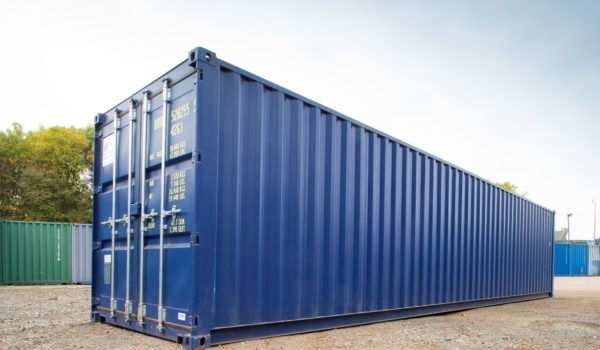The use of shipping containers in Yorkton will soon be more closely regulated.
“Shipping Containers or ‘Sea Cans’ as they are known, are intended to be used for the transport of goods from one place to another. They are designed to be packed with goods and lifted, stacked, handled, and moved by one mode of transportation or another. The City’s Zoning Bylaw does not permit shipping containers to be used for any other purpose,” explained Michael Eger Director of Planning, Building & Development with the City told the regular meeting of Yorkton Council Monday.
“Despite modest efforts to curb their use, Administration has observed a growing number of shipping containers being used as storage buildings within the City.”
Eger explained the barriers to enforcing shipping containers being used as storage buildings are that:
*They are readily movable and quick to appear/disappear;
*It can be difficult to determine whether a shipping container is still in transit; and
*The National Building Code has previously been nondescript about whether they should be treated as buildings.
Eger said the provincial rules are now changing so the City has to move to more regulation as well.
“Recently, however, the Saskatchewan Building Standards Branch issued an advisory stating that, when a shipping container is no longer used for its original purpose of shipping and the storage of freight, and is placed on property for use in the support or shelter of any use or occupancy, the structure must be considered a building. As a result, Administration is in a position where it must formalize a regulatory approach to ensure compliance with the Provincial advisory,” he said.
In order for the City to comply with the Provincial advisory, the city would need to either undertake zoning changes or alternatively, enforce the current rules more vigorously (which would effectively prohibit the use of shipping containers as buildings, explained Eger.
“Administration respects that many businesses would contest any decision to ban shipping containers,” he said, adding this is because shipping containers are inexpensive, in ample supply, secure, weather-tight, rodent proof, and because they allow users to have flexible storage space that can be added or deleted with relative ease.
“Proponents have additionally argued that recent economic decline has also made the idea of building more costly storage space either unwise or unaffordable.”
As such, Administration is amenable to their use as a type of construction method, provided they are installed and used in a safe and orderly manner. Administration also considers it prudent to regulate shipping containers so that their ability to be used as a building construction method does not inhibit conventional construction of permanent structures, explained Eger.
In consideration of this and of the regulations that are being adopted in other communities, Administration is therefore proposing that, in addition to requirements for shipping containers to adhere to Building Code and Fire Code regulations, they also meet:
*Zoning requirements for parking, landscaping/screening, and storm water management;
*Property Standards requirements for an improved exterior finish free of rust, and where applicable, that matches or compliments a principal building; and
*Taxation requirements so that they are considered as assessable structures.
“In an effort to be fair, the Administration has conducted an inventory of shipping containers / shipping trailers throughout the City that we are aware of. A letter was sent to all affected property owners, informing them of the City’s intent to amend shipping container regulations along with a memo on how they would be interpreted under the National Building Code,” said Eger.
“We felt it was important to engage users prior to introducing proposed bylaw amendments through a public Council meeting. We will work closely with those owners to ensure they fully understand the regulations, so that they will not be blindsided by any future enforcement efforts. We will additionally work to establish reasonable timelines for compliance, based on the merit of the existing use, content and number of containers.”
The containers are also being used in residential areas, said Eger.
“There are three aspects of shipping container use that need to be considered in a residential context – permanent installation for use as storage buildings, permanent installation for human habitation, and temporary storage use to accommodate moves or renovations,” he said.
“At this time Administration is not proposing to incorporate changes that would allow for shipping containers to be used as a permanent form of construction. This means that a container could not be built in place of a storage shed or garage, nor used as a form of housing. Administration is not necessarily opposed to using containers as a construction method for human habitation, but is leery about introducing rules that would allow for widespread use that could have potentially negative effects on safety, functionality and neighbourhood aesthetics. As such, any sort of housing project is intended be considered on a case-by-case basis, and evaluated on its specific merits.”
Council gave the bylaw changes unanimous first reading.
The proposed amendment will now be referred to the Planning & Infrastructure Commission, as well as advertised for community feedback.



